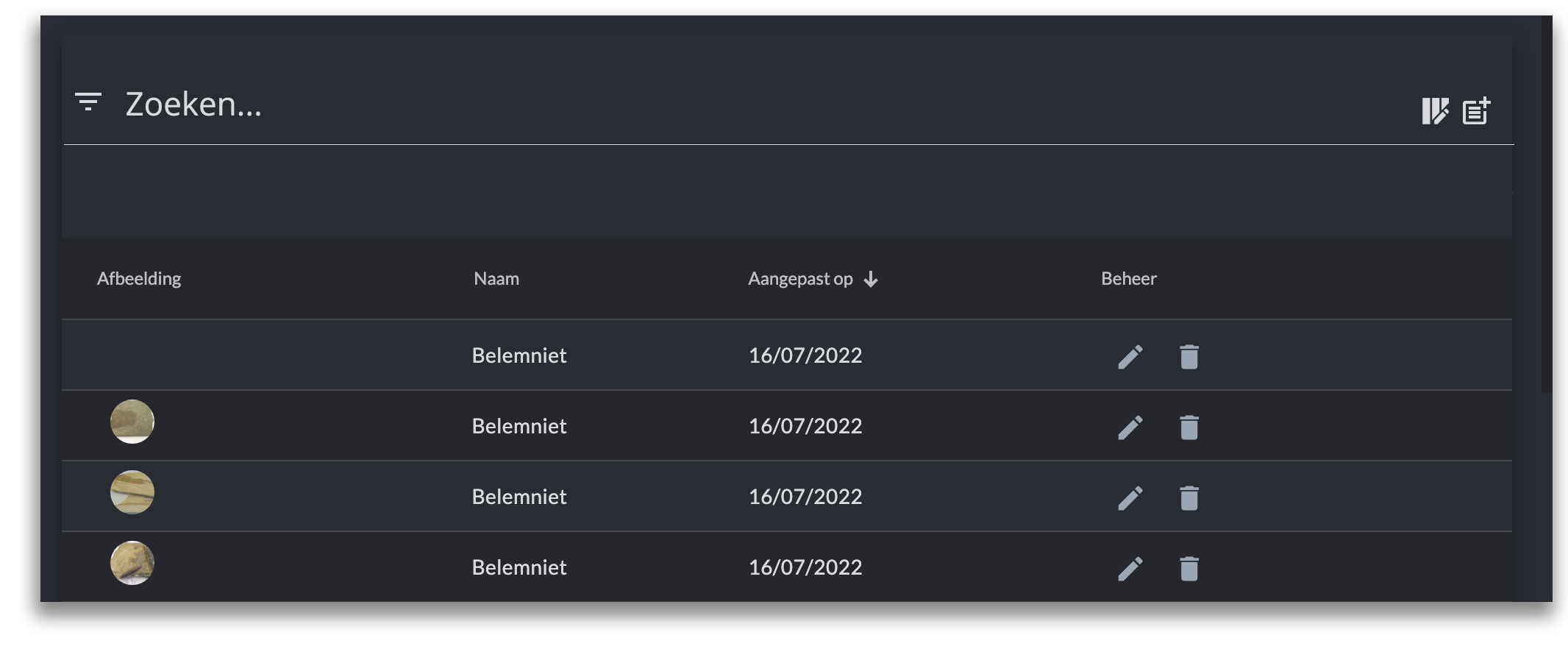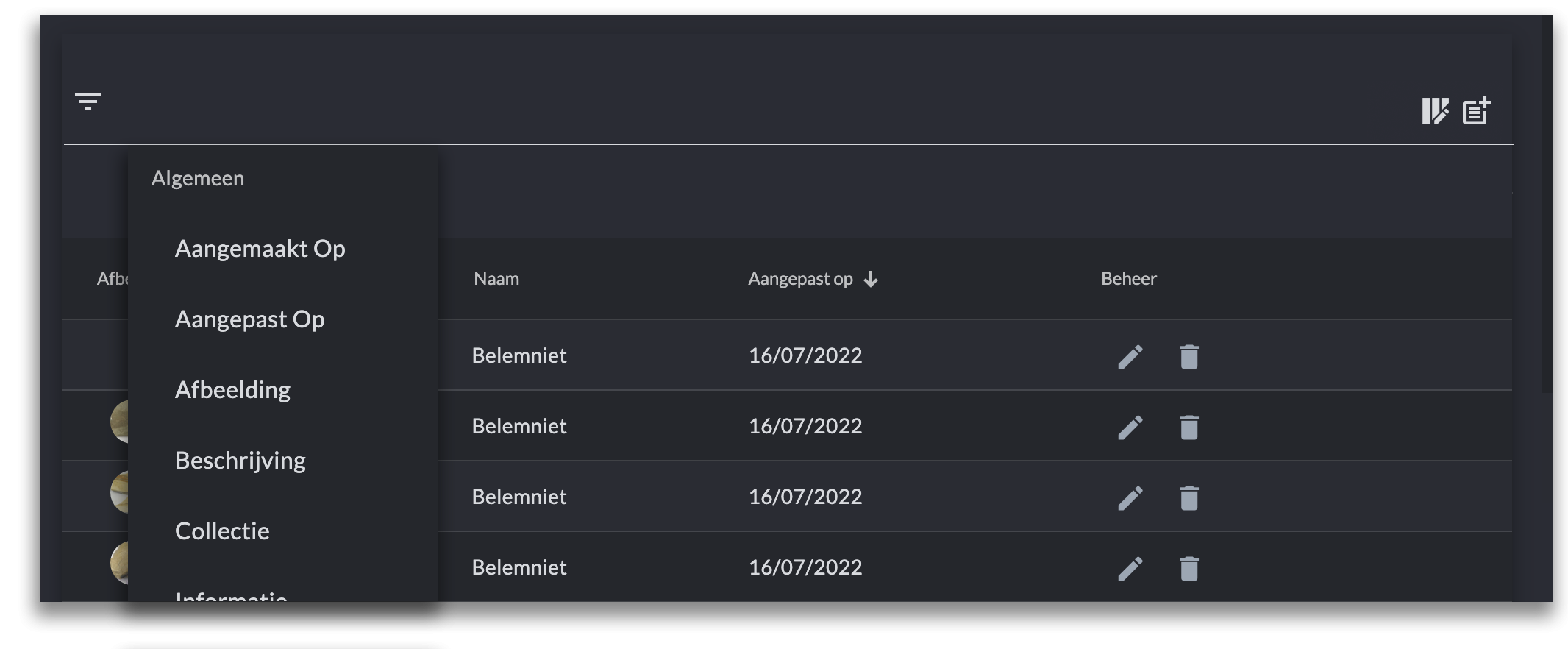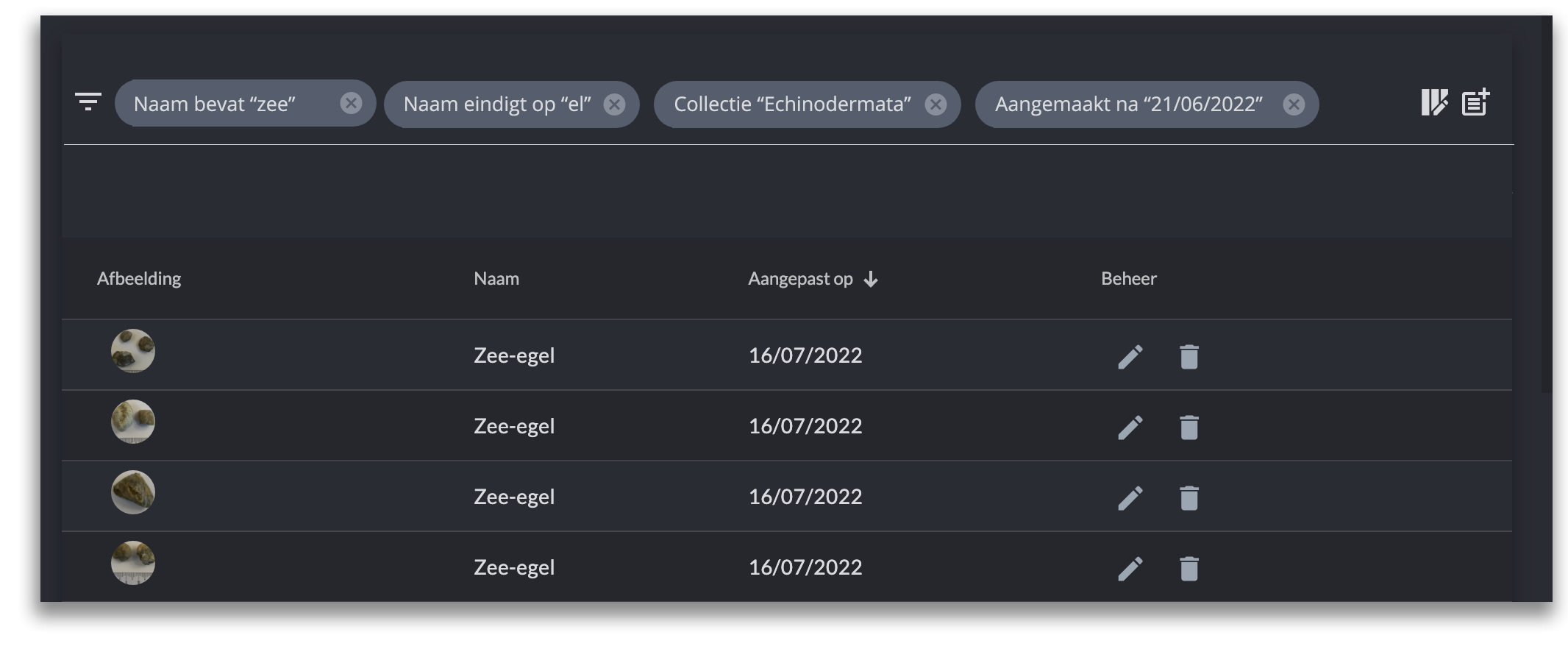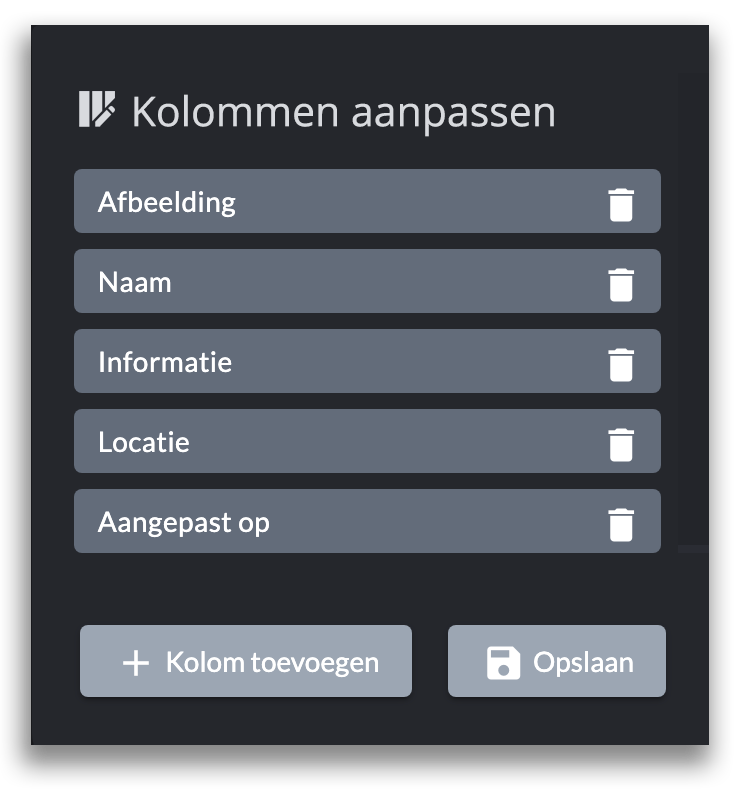KLEKSI features a new advanced search function that makes searching for specific objects very easy. In addition, it is possible to generate lists with the help of the new search function that can be used for research or organizing exhibitions. In this blog we briefly explain how these new functions work.
When you think of an advanced search function, you may think of a complex search functionality with lots of input fields and mathematical calculations with options such as "and", "or" and "not". KLEKSI's search function offers the same options but in a contemporary and very user-friendly way.
At first glance, the new search function looks like any simple search function with only one input field, but as soon as you click on the input field you will discover that much more is possible.
As with any search function, you can search by entering a word you are looking for. As soon as you click in the search field, a list with all names of entry fields that are present in your database opens below.
For example, if you click on the name of the "Manufacturer" field, you can create a filter on the relevant entry field. You can then, for example, make a choice for "contains", "equal to", "starts with" and "ends with". For example, you can search for all manufacturers whose name starts with "Johan", within a period of 1600 and 1700. With this search you will find all objects of "Johannes Vermeer".
Specific filters can be set for each type of input field. Below you can see some examples of this.
This way you can add (unlimited) searches or filters to get to the desired results as specifically as possible.
Once you have set all the filters and selected the desired results, you can save them as an 'external list'. These 'lists' can be used internally for research or for compiling exhibitions. The lists can then be exported to Excel or a CSV file. Via a handy pop-up window it is possible to determine the columns and the order of the columns of a list before you start exporting the list. 
In addition to being able to search in a user-friendly way, it is of course also important that the results are retrieved quickly, especially if your collection consists of an enormous amount of data. This was the biggest challenge for us. Unfortunately, we have not (yet) been able to test with a million objects, but to give you an idea, we searched within the collection of the Oertijdmuseum, which consists of 13,000 objects, and within 110 milliseconds we received 200 results after setting one filter.
The new advanced search function was developed in collaboration with the Eindhoven Museum and has become a standard part of KLEKSI and is now included in every (SaaS) license at no extra cost.


